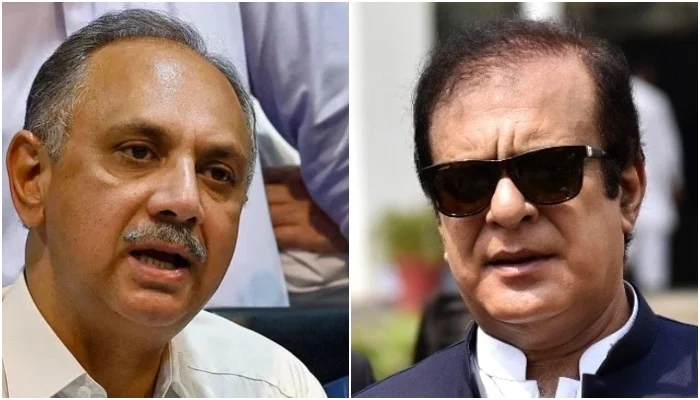May 9 Case
FAISALABAD: An Anti-Terrorism Court (ATC) issued non-bailable arrest warrants for prominent Pakistan Tehreek-e-Insaf (PTI) leaders, including National Assembly Opposition Leader Omar Ayub, Senate Opposition Leader Shibli Faraz, PTI’s Kanwal Shauzab, and former party leader Fawad Chaudhry.
These warrants were issued in connection with their alleged involvement in the violent May 9 riots, which saw widespread destruction, including the setting of a police van on fire.
The court issued the warrants after these leaders failed to appear in court for hearings related to the case, which was registered at the Civil Lines Police Station.
The case revolves around accusations that these leaders played a role in aiding and abetting arson during the riots. The court’s action follows a series of failed appearances by the accused individuals, which led to the issuance of non-bailable warrants, reflecting the seriousness of the charges against them.
During the hearing, PTI member provincial assembly (MPA) Junaid Afzal Sahi, who along with Khayal Ahmad Kastro had previously been declared absconders, informed the court that a review petition had been filed, which was adjourned by the court for future hearings.
The May 9 riots were triggered by the controversial arrest of PTI founder Imran Khan in a corruption case, leading to violent protests and vandalism, including attacks on military installations.
The incident has caused significant political and legal fallout, with the PTI leadership, including Imran Khan, Shah Mehmood Qureshi, and others, facing a number of legal challenges.
While the PTI leadership denies involvement in inciting the violence, both the then-Pakistan Democratic Movement (PDM) government and the caretaker administration have accused the party of fueling the unrest.
In the aftermath of the riots, those involved in the violence were tried in military courts, with 85 individuals receiving sentences ranging from two to 10 years. However, 19 of the convicted individuals were pardoned after filing mercy petitions.
PTI has criticized the use of military courts for trying civilians, calling it a violation of justice. The issue of the May 9 riots has become central to PTI’s ongoing negotiations with the government.
PTI has demanded the formation of a judicial commission to investigate the events of that day, specifically looking into the circumstances surrounding Khan’s arrest, the access individuals had to high-security locations, and the handling of those arrested.
This demand is part of PTI’s broader Charter of Demands, which also includes an inquiry into alleged human rights violations in the handling of the riot-related arrests.


